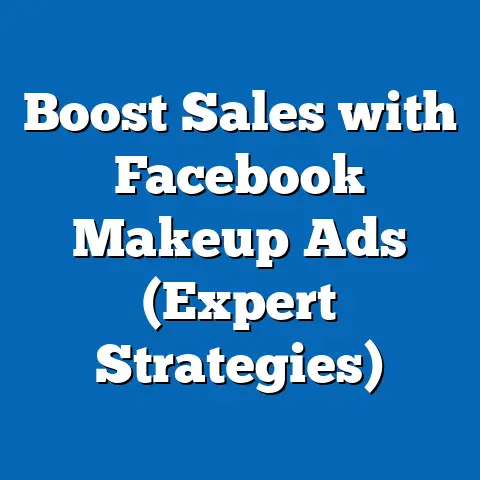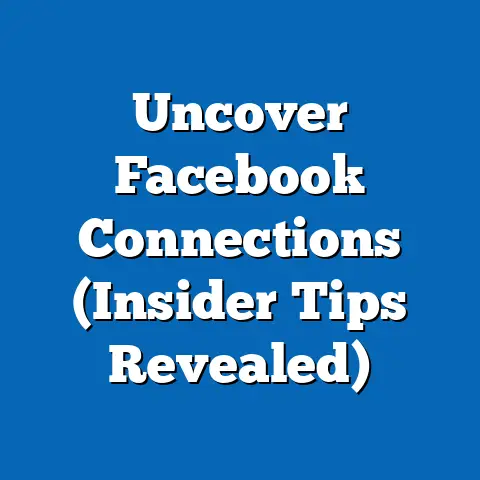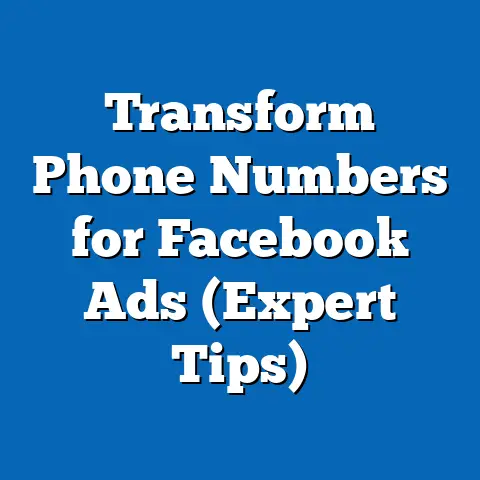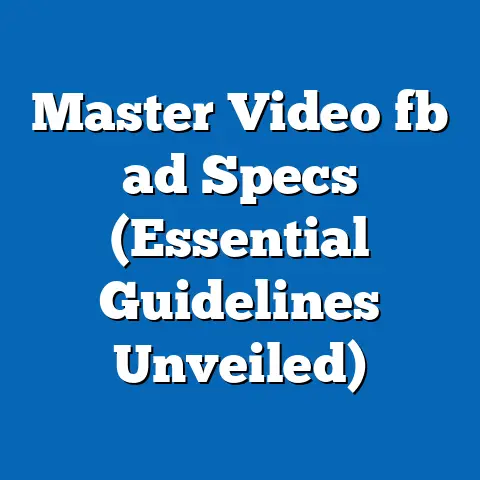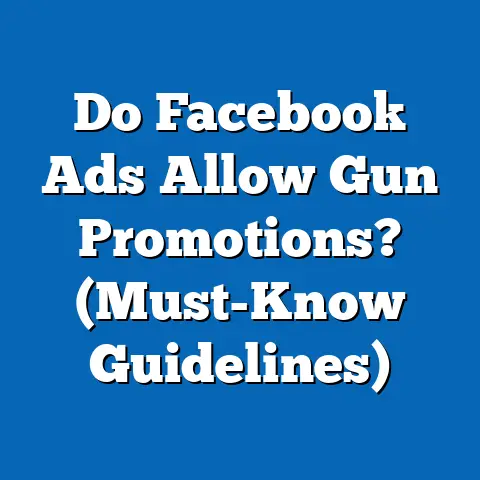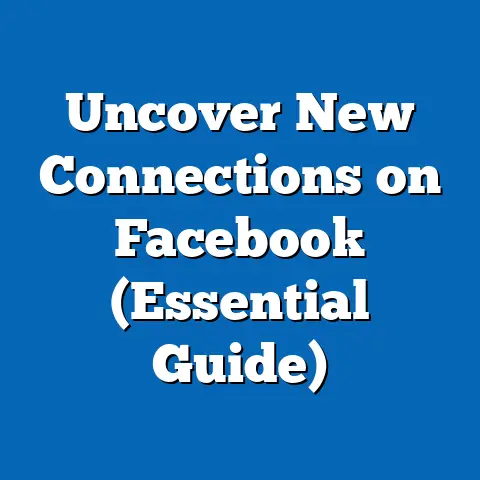Unlock Facebook Ads Costs in the UK (Expert Insights)
Do you remember the first time you saw a captivating billboard, a catchy TV commercial, or a glossy print ad?
These traditional forms of advertising were once the kings of marketing, shaping our perceptions and influencing our purchasing decisions.
But times have changed, haven’t they?
The rise of the digital age has ushered in a new era, and Facebook has emerged as a revolutionary platform, transforming the way businesses connect with their audiences.
In today’s fiercely competitive market, understanding Facebook Ads costs is crucial, especially for businesses in the UK.
I’ve seen firsthand how a well-strategized Facebook campaign can propel a small startup to new heights, while a poorly managed one can quickly drain resources.
Let’s dive into the world of Facebook advertising and explore how you can unlock its potential without breaking the bank.
Section 1: The Evolution of Advertising
Advertising has come a long way from town criers announcing the latest wares!
Historically, advertising relied heavily on mass media – newspapers, radio, and television – to reach broad audiences.
These methods were effective, but they lacked the precision and interactivity that digital platforms offer today.
The advent of social media, particularly Facebook, revolutionized advertising strategies.
Suddenly, businesses could target specific demographics, interests, and behaviors, creating highly personalized ad experiences.
Facebook’s massive user base and sophisticated targeting capabilities made it an indispensable tool for marketers worldwide.
In the UK, Facebook’s growth has been particularly significant.
As of 2023, Statista reported over 44 million Facebook users in the UK, representing a substantial portion of the population.
This demographic shift has transformed the advertising landscape, with businesses increasingly allocating their budgets to digital channels like Facebook to reach their target audiences more effectively.
In my experience, ignoring this shift is like trying to sail against a strong current – you might make some progress, but it’s going to be a struggle.
Key Takeaway: The shift from traditional to digital advertising, especially on platforms like Facebook, is undeniable.
UK businesses need to adapt to this new reality to stay competitive.
Section 2: Understanding Facebook Ads Costs
Before we get into the nitty-gritty, let’s break down the fundamental components of Facebook Ads costs.
You’ll often hear terms like CPC, CPM, and CPA thrown around, so let’s define them:
- CPC (Cost Per Click): This is the amount you pay each time someone clicks on your ad.
It’s a direct measure of how engaging your ad is and how well it resonates with your target audience. - CPM (Cost Per Mille): Also known as Cost Per Thousand, this is the amount you pay for every 1,000 impressions your ad receives.
An impression is counted each time your ad is displayed to a user, regardless of whether they click on it.
CPM is useful for brand awareness campaigns where the goal is to reach as many people as possible. - CPA (Cost Per Acquisition): This is the amount you pay for each conversion, such as a purchase, lead generation, or app install.
CPA is a critical metric for businesses focused on driving specific actions from their target audience.
These metrics aren’t static; they vary based on several factors, including your industry, target audience, ad placement, and the overall competitiveness of the advertising landscape.
For example, I’ve noticed that industries like finance and insurance tend to have higher CPCs due to the high value of each conversion.
Similarly, targeting a highly specific and niche audience might result in higher costs due to the limited pool of potential customers.
So, what are the average costs associated with Facebook Ads in the UK?
According to recent data from WordStream, the average CPC across all industries in the UK is around £0.50, while the average CPM is approximately £7.50.
However, these are just averages, and your actual costs may vary significantly depending on the factors mentioned above.
Key Takeaway: Understanding the different cost metrics and how they’re influenced by various factors is essential for managing your Facebook Ads budget effectively.
Section 3: Factors Influencing Costs
Now that we’ve covered the basics of Facebook Ads costs, let’s delve into the factors that influence them.
Understanding these factors will empower you to make informed decisions and optimize your campaigns for better results.
- Audience Targeting: The more specific and targeted your audience, the higher your costs are likely to be.
This is because you’re competing for a smaller pool of potential customers.
However, highly targeted campaigns often result in higher conversion rates, making the increased costs worthwhile.
On the other hand, broader targeting may result in lower costs, but your ads might be shown to people who are less likely to be interested in your products or services. - Ad Quality: Facebook rewards high-quality ads with lower costs and better placement.
Ad quality is determined by factors such as relevance, engagement, and overall user experience.
Creating compelling ad copy, using high-quality visuals, and ensuring your ads are relevant to your target audience will improve your ad quality score and reduce your costs. - Competition: The level of competition in your industry and target audience also affects your costs.
If many businesses are targeting the same audience, you’ll need to bid higher to win ad auctions.
This is where strategic planning and differentiation come into play.
Finding unique angles and targeting underserved segments can help you reduce competition and lower your costs. - Bidding Strategies: Facebook offers various bidding strategies, each with its own advantages and disadvantages.
Common bidding strategies include cost per click (CPC) bidding, cost per impression (CPM) bidding, and automated bidding.
Choosing the right bidding strategy depends on your campaign goals and budget.
For example, if you’re focused on driving conversions, cost per acquisition (CPA) bidding might be the best option.
I remember working with a local bakery that was struggling to generate leads through Facebook Ads.
After analyzing their campaign, I realized they were targeting a broad audience with generic ad copy.
By narrowing their focus to specific demographics (e.g., parents of young children) and creating ads that highlighted their custom cake services, we were able to significantly improve their ad quality and reduce their costs.
Key Takeaway: Optimizing your audience targeting, ad quality, bidding strategies, and differentiating yourself from the competition are crucial for managing your Facebook Ads costs effectively.
Section 4: Strategies for Cost-Effective Facebook Advertising
Now for the good stuff!
Let’s explore actionable strategies that can help you maximize your advertising budget on Facebook and achieve a significant return on investment (ROI).
- A/B Testing: A/B testing involves creating multiple versions of your ads and testing them against each other to see which performs best.
This could include testing different headlines, images, ad copy, or call-to-action buttons.
By continuously testing and refining your ads, you can identify the most effective elements and optimize your campaigns for better results. - Audience Segmentation: Segmenting your audience based on demographics, interests, behaviors, or other criteria allows you to create more targeted and relevant ads.
This can improve your ad quality score and reduce your costs.
For example, you might create separate campaigns for different age groups or income levels. - Ad Creative Optimization: Your ad creative (images, videos, and ad copy) plays a crucial role in capturing attention and driving engagement.
Using high-quality visuals, writing compelling ad copy, and creating a clear call-to-action will improve your ad performance and reduce your costs.
Consider using video ads, as they tend to be more engaging than static images.
I’ve seen countless examples of UK businesses that have effectively managed their Facebook Ads costs and achieved significant ROI.
One notable case is a local e-commerce store that sells handmade jewelry.
By implementing A/B testing, audience segmentation, and ad creative optimization, they were able to reduce their CPC by 30% and increase their conversion rate by 50%.
This resulted in a significant boost in sales and revenue, proving the power of strategic planning and optimization.
Key Takeaway: A/B testing, audience segmentation, and ad creative optimization are essential strategies for maximizing your advertising budget and achieving a significant ROI on Facebook.
Section 5: Future Trends in Facebook Advertising Costs
Looking ahead, what can we expect in terms of Facebook advertising costs?
Emerging technologies and changing consumer behavior will undoubtedly shape the future of advertising, and it’s crucial for marketers to stay ahead of these trends.
The ongoing development of artificial intelligence (AI) and machine learning (ML) will likely have a significant impact on ad costs and targeting capabilities.
AI-powered tools can analyze vast amounts of data to identify patterns and insights, allowing advertisers to create more targeted and personalized ads.
This could lead to higher ad quality scores and lower costs.
Moreover, as consumer behavior continues to evolve, marketers will need to adapt their strategies to stay relevant.
For example, the rise of mobile advertising and video marketing presents new opportunities to engage with audiences in more immersive and interactive ways.
Staying ahead of these trends will be crucial for marketers looking to optimize their Facebook advertising strategies and achieve a competitive advantage.
Key Takeaway: Staying informed about emerging technologies and changing consumer behavior is essential for marketers looking to optimize their Facebook advertising strategies and maintain a competitive edge.
Conclusion
Understanding Facebook Ads costs in the UK is paramount for businesses looking to leverage this powerful platform for growth.
I’ve seen businesses transform their marketing efforts with the right strategies and knowledge.
As you reflect on your own advertising journey, consider the potential of Facebook as a tool for connecting with your audience and achieving your business goals.
With the right knowledge, you can successfully navigate the complexities of Facebook advertising and unlock its potential without breaking the bank.
Remember, the key is to be strategic, adaptable, and always willing to learn and experiment.
Good luck!

